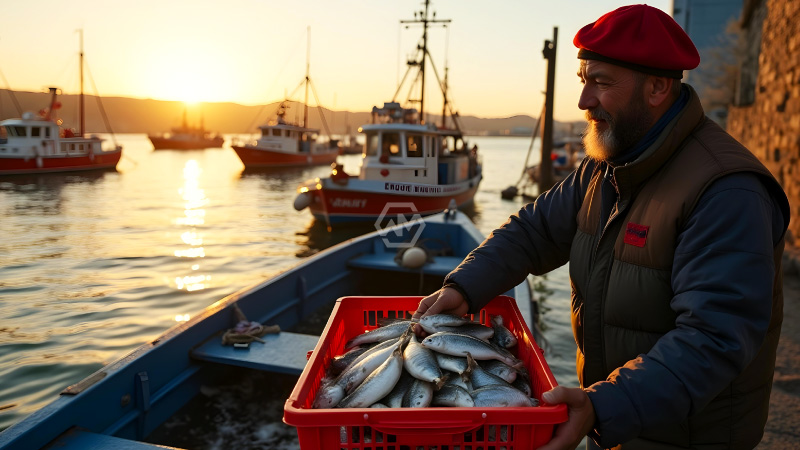- Overfishing and illegal fishing by foreign industrial fleets have depleted Senegal’s fish stocks.
- The crisis has driven many Senegalese fishers to risk dangerous migration to Europe.
- The Environmental Justice Foundation (EJF) report calls for urgent action to protect Senegal’s fisheries and communities.
Overfishing and illegal fishing practices in Senegalese waters have caused a dramatic decline in fish populations. These practices are primarily carried out by European and Chinese industrial fleets.
The Environmental Justice Foundation (EJF) report highlights the urgent need for stricter regulations. It emphasizes the importance of enforcement against illegal, unreported, and unregulated (IUU) fishing.
Plundering Senegal’s Seas: How Foreign Fleets Fuel a Migration Crisis
Senegal’s fishing sector, once the backbone of coastal communities, is now in severe decline. Extensive overfishing by international fleets is one reason for this decline. The Environmental Justice Foundation (EJF) report exposes the damaging effects of illegal and unregulated fishing. European and Chinese vessels exploit marine resources and displace local fishers. As fish stocks plummet, coastal residents lose their primary source of income and food. This situation forces many to consider dangerous migration routes to Europe.
Artisanal fishers, who traditionally relied on sustainable methods, now face intense competition. They compete with industrial trawlers that use destructive techniques like bottom trawling. This has led to significant ecological degradation and a rise in food insecurity. Most of the fish caught by these fleets is exported to foreign markets. Meanwhile, Senegalese communities struggle to access their staple protein source, deepening economic despair.
In 2024, migrant arrivals in Spain surged to nearly 64,000, with many coming from Senegal. Desperate fishers and young men, unable to find work, are now risking their lives to reach the Canary Islands. The EJF’s film humanizes the crisis through the story of Abdou, a young Senegalese fisher. It shows how he embarks on a deadly voyage, reflecting the shared plight of thousands like him.
Local activists, including Karim Sall of AGIRE, are urging international authorities to recognize the connection between depleted fisheries and migration. They argue that European nations benefiting from Senegal’s marine resources must be held accountable for the destruction they leave behind. The report suggests that a sustainable, community-focused approach to fisheries management could mitigate the migration crisis and restore economic stability.
Addressing the root causes of Senegal’s fisheries crisis requires global accountability. It also demands sustainable fishing practices and stronger protections for vulnerable coastal communities.
“We are risking our life to go, but they come here to steal our fish. It’s theft – plundering our resources to feed their own inhabitants while we suffer.” — Karim Sall, President of AGIRE



